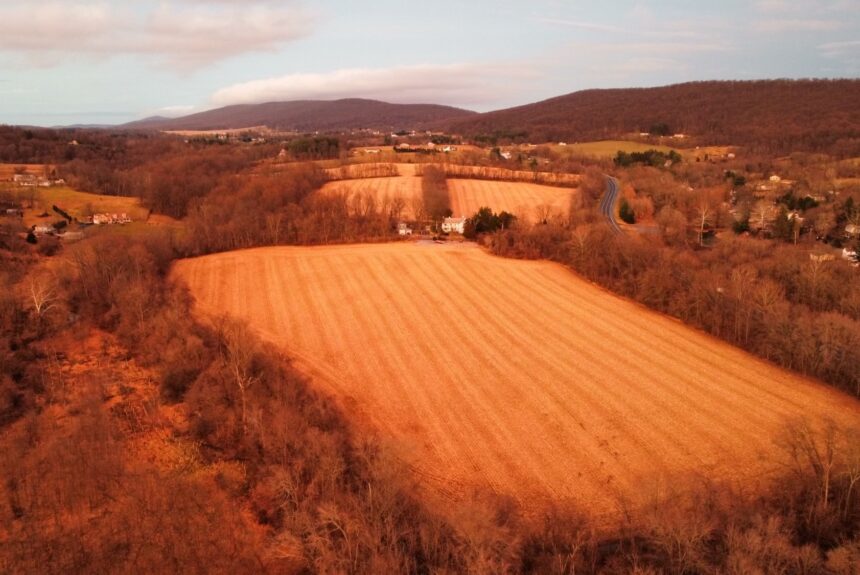The Bipartisan Policy Center (BPC) published a paper earlier this year arguing that USDA Conservation Programs are “nationally valued, locally driven, and oversubscribed.”
As BPC explained, in FY2021 only a third of the 115,000 applicants to the nation’s two most popular conservation programs – the Environmental Quality Incentives Program (EQIP) and the Conservation Stewardship Program (CSP) – received support.
BPC added, “Oversubscription is especially true for EQIP – in FY2021 nearly 60% of the 113,000 applications received were deemed to be valid but only half of those projects received funding.”
The answer isn’t merely to fully fund these programs to meet demand (preferably by shifting money from less effective programs), but for Congress and the administration to fully understand why they’re so popular. The reason is simple: No one cares more about stewarding a farmer or rancher’s land than the farmer or rancher who owns the land.
>>>READ: What Conservation Measures Should Be Included In The 2023 Farm Bill?
Economics 101 and human nature tells us that people who use their own money to care for their own land tend to do a better job than people who use other people’s money to take care of land owned by other people. To be clear, EQIP recipients are using other people’s (i.e. taxpayer) money, but as the primary decision makers and landowners, they are deeply invested in good outcomes. Consider my own experience as an EQIP recipient.
In 2018, we bought a 62-acre Civil War era farm in Pleasant Valley, Maryland, not far from Harpers Ferry and Antietam. Overnight I acquired 144 times the amount of land I had previously owned in Fairfax, Virginia (.43 acres). The jump in responsibility was – and is – awesome and always on the cusp of overwhelming. I tempered any romantic aspirations of perpetual bucolic bliss with reasonable expectations of the work involved in managing that amount of land. I had the benefit of frequent reality checks provided by friends and world class farmers like Justin Knopf (the farmer in the book and documentary “Farmer, Rancher, Fisherman”) and Tracey Mann (Representative of Kansas’ “Big First” district and a member of the House Agriculture Committee).
Justin’s best advice (besides describing the difference between hay and straw) was to encourage me to meet not only local farmers but federal and state agricultural officials in my area. One of my early connections was with our local forester, Bob Schwartz, who gave me an education on why so many trees on my land were dying. Almost half of my acreage is forested and littered with dead and dying ash trees that were killed by the emerald ash borer, an invasive beetle that has taken out millions of ash trees in the Mid-Atlantic and other regions. Bob also taught me to identify and eradicate “Trees of Heaven,” or Ailanthus, that provide a habitat for the spotted lanternfly, another invasive insect that could threaten the majestic black walnut trees close to my home.
Developing an understanding of the ecosystem on my own land inspired me to offset the loss of trees by planting as many new ones as quickly as I could. Enter EQIP.
Let me pause here to explain that as a lifelong fiscal conservative, I don’t believe in “good government” and “good programs.” Government is not good. It is force. Government exists to secure and safeguard liberty so that individuals and civil society institutions (families, churches, clubs, etc.) can do good. The role of elected officials is to make government less clumsy. So-called “whole of government” approaches are inferior to “whole of society” approaches that are locally driven. This is not an anti-government philosophy but a pro-freedom and pro human flourishing philosophy. When government is operating as intended, the measure of freedom we sacrifice – and authority we grant to the state – enables a net expansion of freedom, prosperity, and flourishing. Permanent skepticism of government doesn’t mean permanent cynicism. Just the opposite. It’s an optimistic belief that constraining government unleashes unlimited potential and creativity.
With that caveat, here’s the bottom line for my experience with EQIP. The amount of funding I’ve received through EQIP is a small fraction of what I’ve invested in managing my own land in terms of equipment and time. Without Bob, Hans Kefauver at USDA, and EQIP, I would have struggled to plant a few dozen trees. With their help, I was able to develop a professional forestry plan, leverage USDA’s network of contractors and plant 1,100 trees. Many of those trees will create a riparian buffer along Israel Creek that flows into the Potomac about three miles downstream. The benefits to my family, neighbors and, yes, the planet are significant.
>>>READ: NASA Research is Unleashing a Vertical Farming Boom
What’s even more important is that the state and federal government would have been powerless to improve my land without my initiative. Because EQIP puts local landowners in the driver’s seat, the program can create a massive multiplier effect of benefits. The more policymakers shift the center of gravity to bottom-up rather than top-down actors the better.
When Congress considers the next Farm Bill, which is set to expire in September, they should look to EQIP and the experience of landowners for guidance. The authors should aspire to create a Farmer’s Bill that puts landowners at the center, not periphery, of the conversation. My story isn’t the exception, it’s the norm. EQIP’s public/private-landowner partnership approach is a template policymakers should follow in all areas of government. Just ask your local farmer.
The views and opinions expressed are those of the author’s and do not necessarily reflect the official policy or position of C3.
